One hundred and fifty years have passed since Sir Winston Churchill was born.
The Prime Minister, most notably recognised for wearing top hats and smoking cigars, led Britain through the darkest days of the Second World War.
Alongside decades of service as a politician, Churchill led a “dashing” military career, while also reporting from far flung battlefields as a war correspondent.
Despite troubling early year and doubting peers, it was clear to Churchill himself that he was destined for greatness.
Kate Clements, Curator of Churchill War Rooms in London said: “Churchill is a pivotal figure in history, certainly British history and twentieth century history.”
“He was a global figure. He was a world statesmen during his lifetime.”
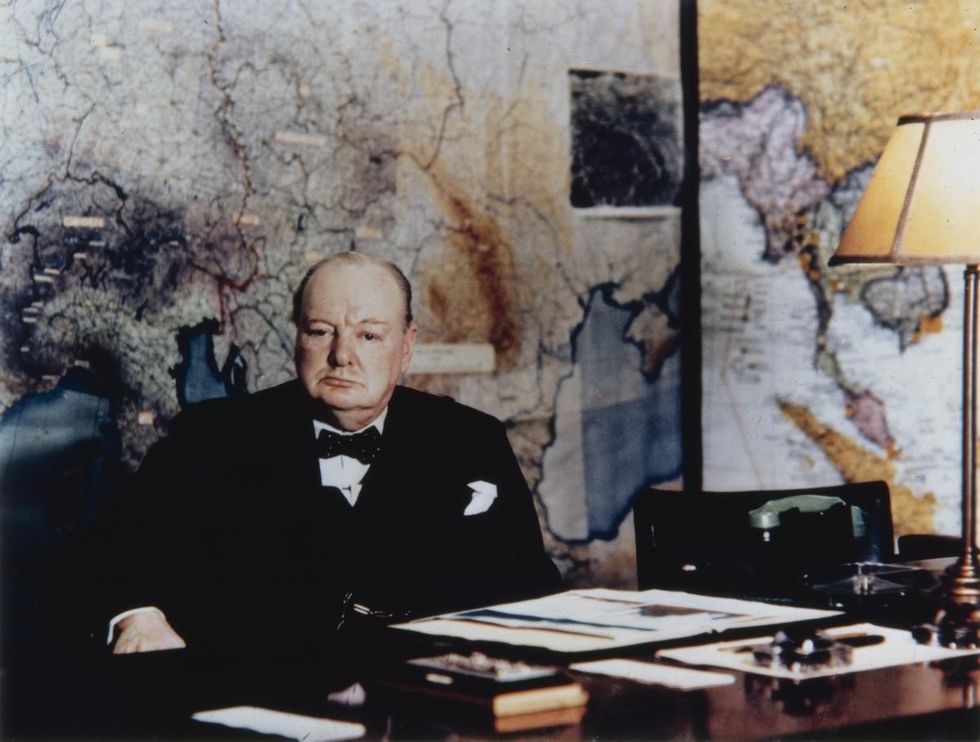
Sir Winston Churchill in Cabinet Office marking VE Day
IWM
“He was a towering figure in many ways,” she added.
Winston Leonard Spencer Churchill was born on November 30, 1874 into the aristocratic Spencer family.
Born at Blenheim Palace in Oxfordshire to the politician Lord Randolph Churchill and American-born socialite Jennie Jerome, young Winston’s unloving home left a lasting mark on him.
Clements said, as a little boy Churchill was “quite naughty” a “handful”.
Like most children born into wealth, Churchill was packed off to boarding school, attending Harrow, where he was often punished by cruel teachers.
Loathing Greek and Latin, Churchill’s love of the English language would serve to his advantage in the coming trials.
Training at Sandhurst and joining the Royal Cavalry in 1895, he served during British campaigns in Africa and the Middle East, later writing for the Morning Star from the Boer War.
“It was crucial for him to have gone to the military academy,” said Clements, for Churchill to learn about “leadership.”
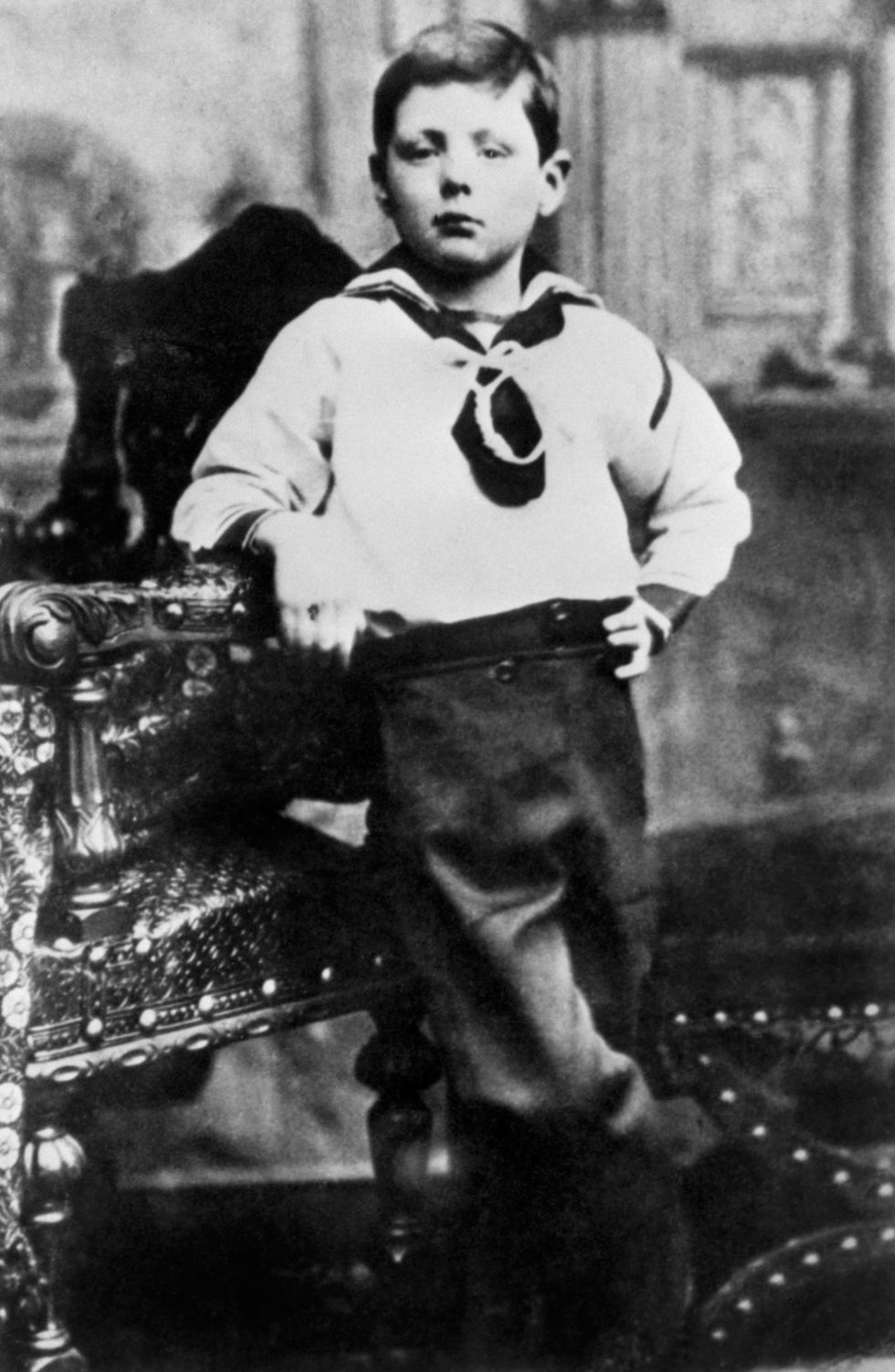
Sir Winston Churchill at the age of seven, dressed as sailor
IWM
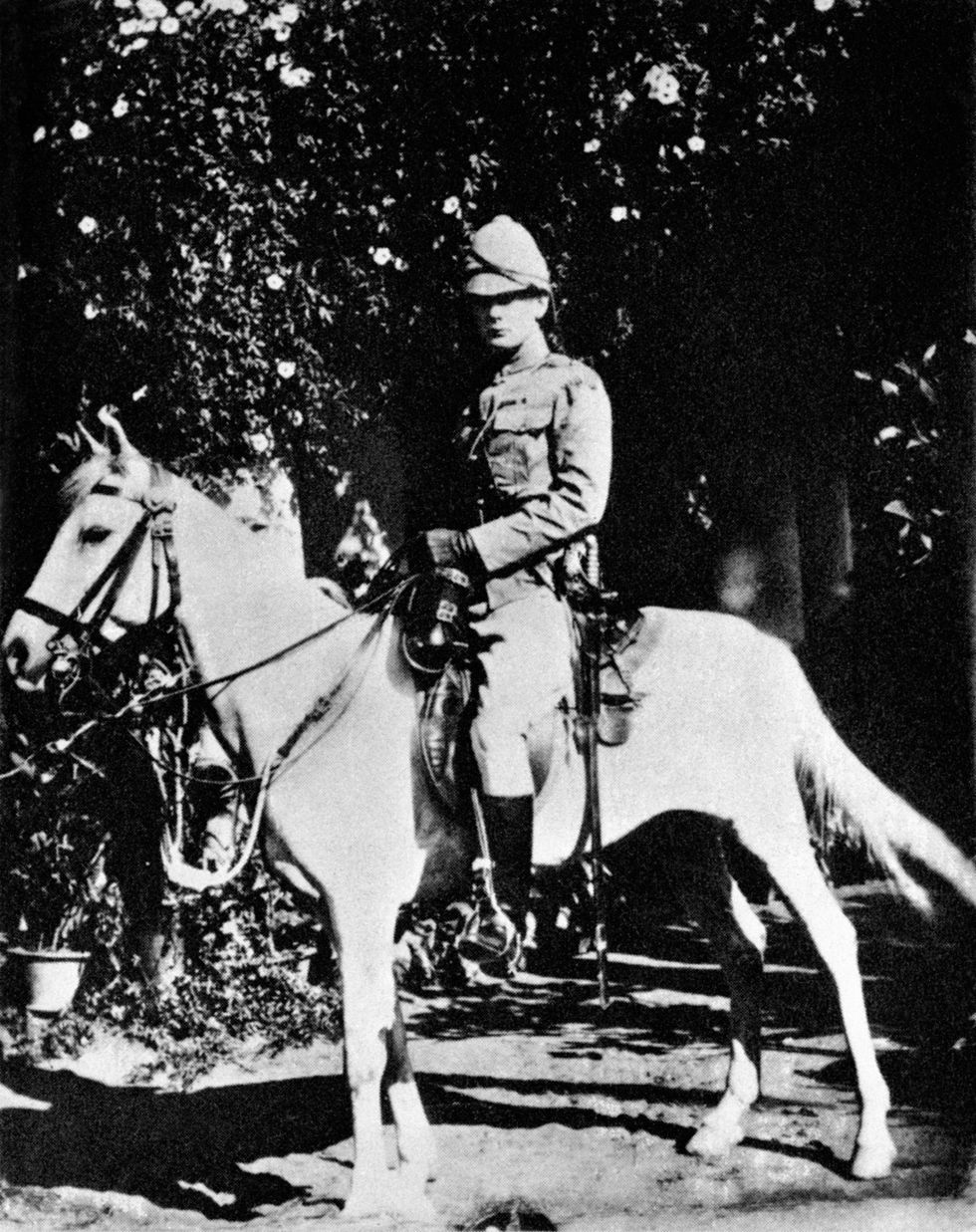
Sir Winston Churchill in Bangalore, India in 1897
IWM
By 1900, Churchill had been elected as a conservative MP for Oldham, and after a brief defection to the Liberals, held Cabinet roles in Government.
During the First World War, Churchill oversaw the Gallipoli campaign, a disaster that damaged his political career and haunted him in later life.
Upon the outbreak of war, and Prime Minister Neville Chamberlain’s resignation in 1940, Churchill was called upon to lead Britain against Nazi Germany.
He later wrote, “I felt…that all my past life had been but a preparation for this hour and for this trial.”
Churchill had spent much of the 1930’s warning of the coming war and was considered by his peers to be the “one man” able to confront Hitler.
“Churchill’s leadership really was pivotal for Britain,” said Kate Clements.
“He changed the atmosphere. His leadership can’t be underestimated.”
“He didn’t stop. He worked himself tirelessly,” she added.
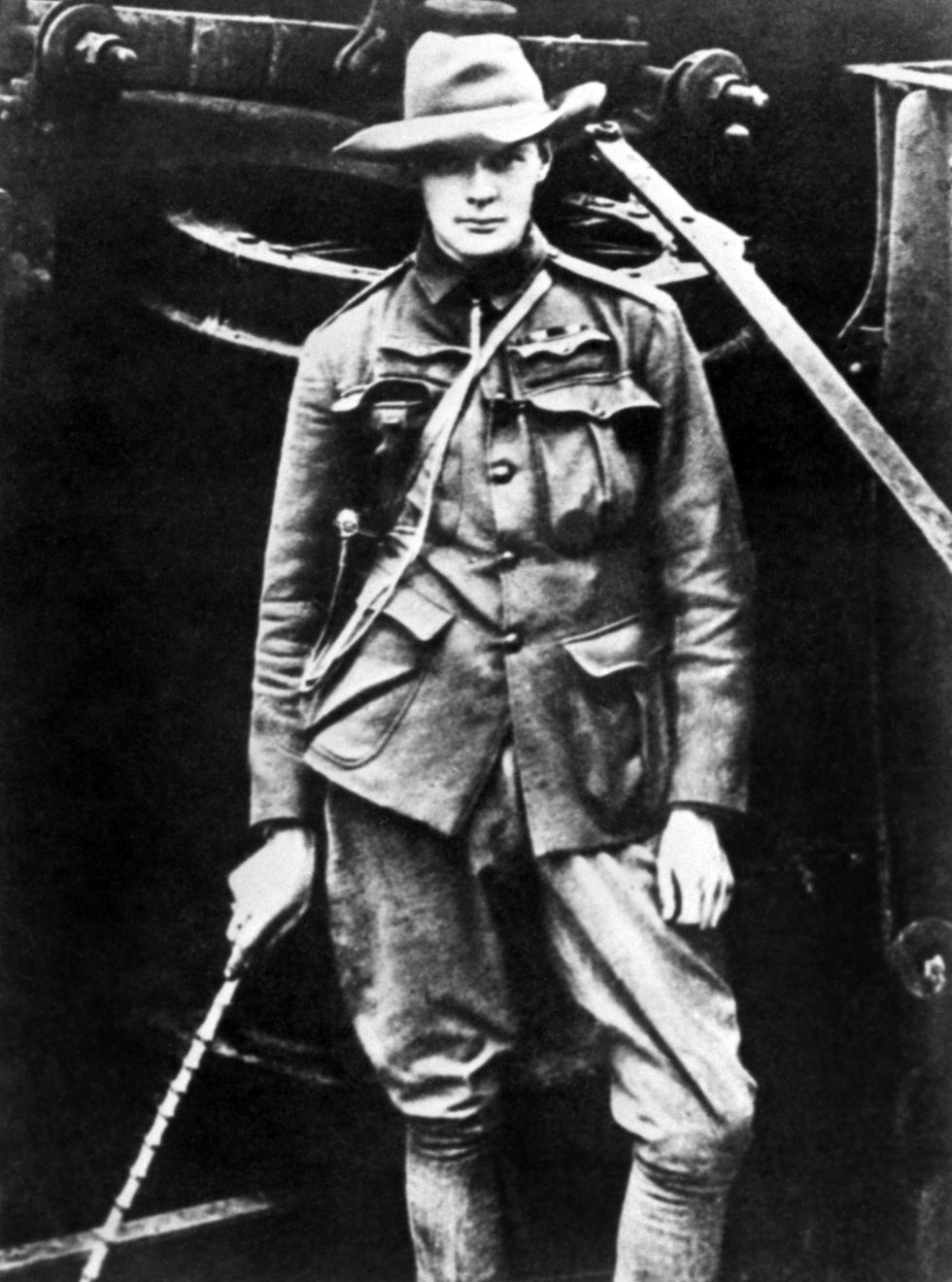
Sir Winston Churchill as a war correspondent for the Morning Post covering the Boer War in South Africa 1899
IWM
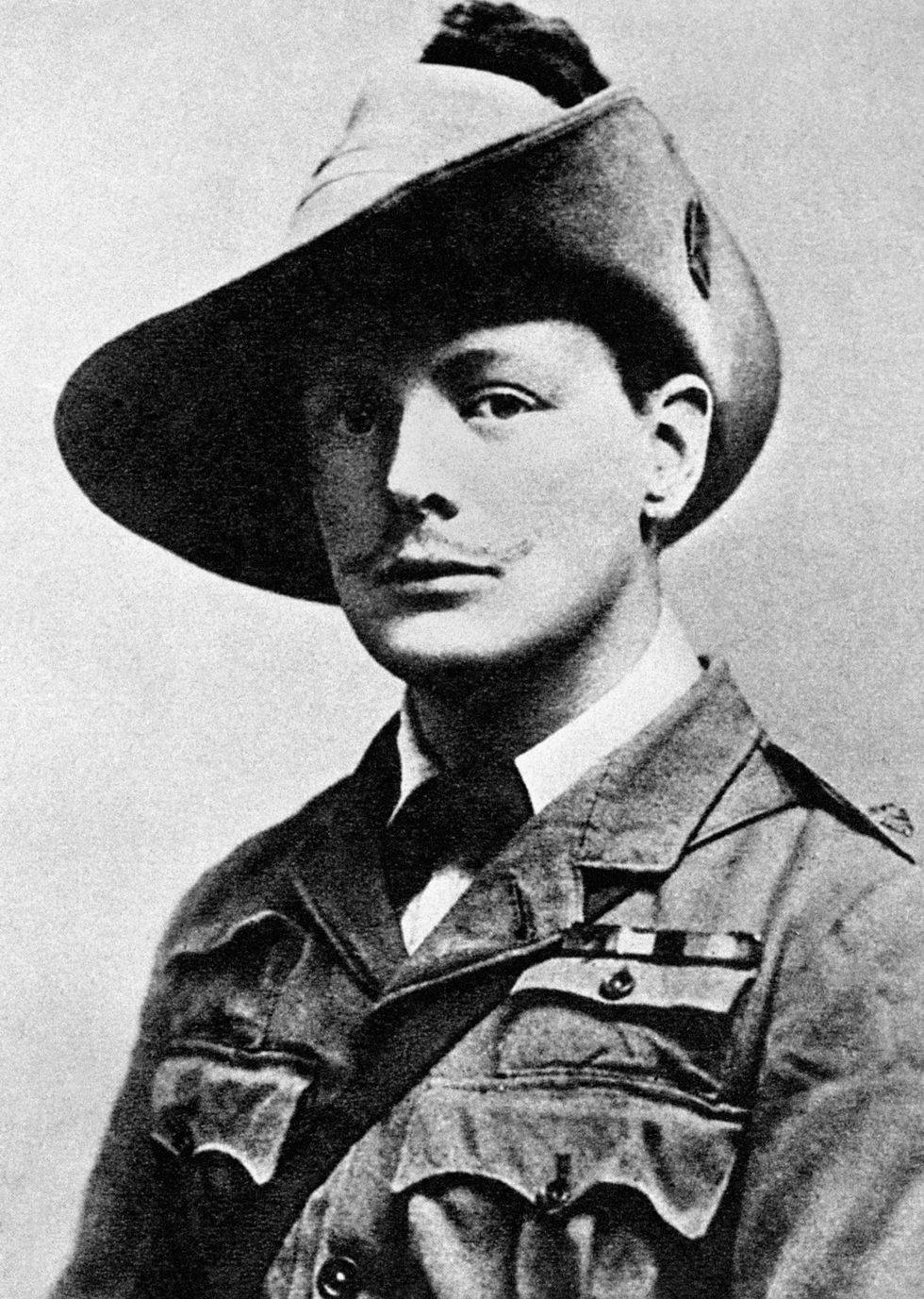
Sir Winston Churchill war correspondent
IWM
“There were voices of descent looking to sue for peace. It was important he was there to say no.”
After the fall of France, the successful rescue of 300,000 British troops at Dunkirk and the defence of London during the ‘Darkest Hour’ of the Blitz, Churchill won the public’s favour as the “saviour of Britain.”
His speeches from this period, most notably ‘We shall fight them on the beaches’ and ‘The Few’ are amongst the most memorable in the English language.
During years of war, Churchill spent countless hours below ground in the secret headquarters of the Cabinet War Rooms.
Renamed after Churchill and maintained by Imperial War Museums, the untouched “time capsule” was “ locked up and left”, said Clements.
Visiting is like “stepping back in time” she said.
Beyond, victory in Europe against Nazi tyranny cemented Sir Winston Churchill’s place in history.
Despite rejection at the ballot box in 1945, Churchill returned to lead the country again in 1951.
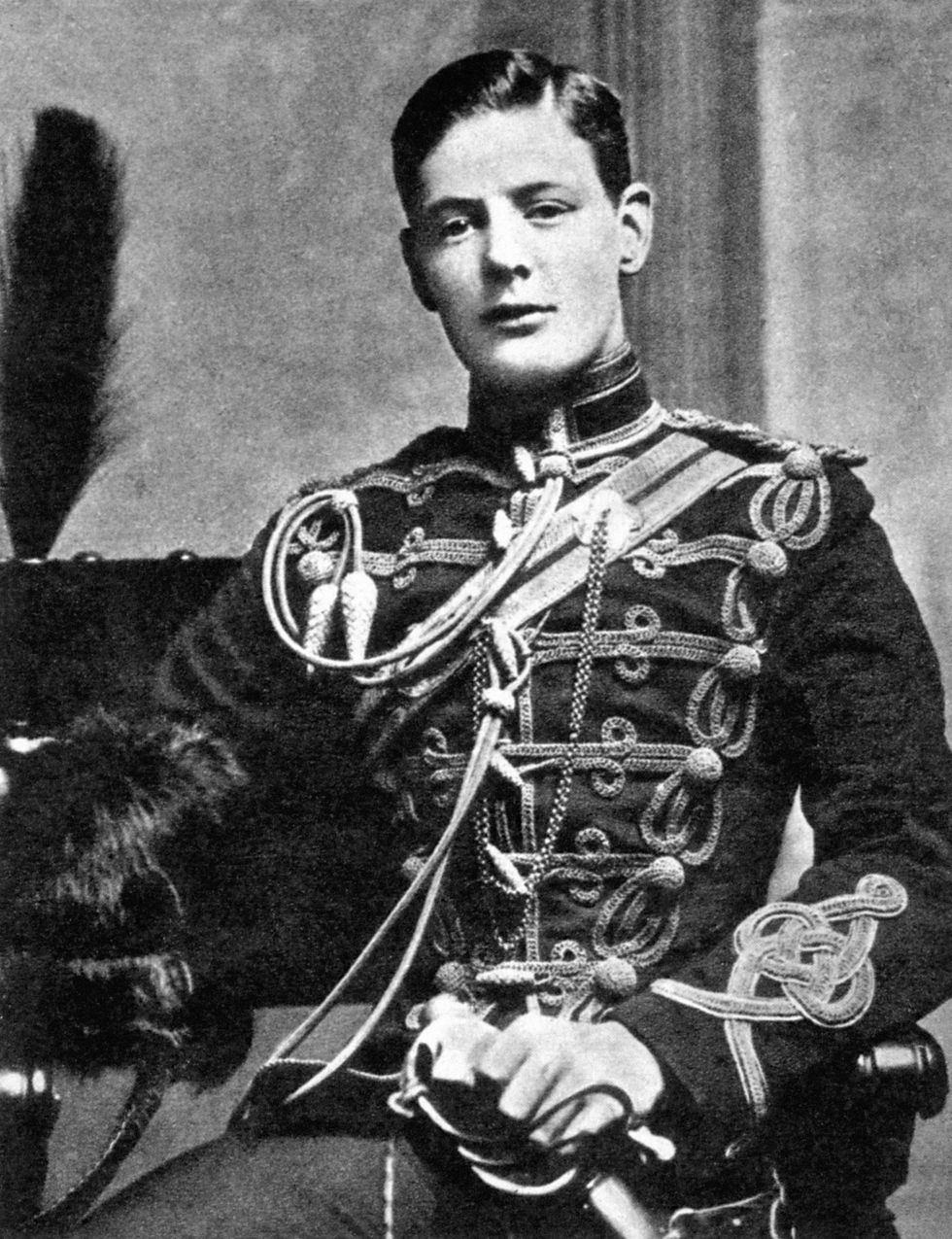
Winston Churchill as a Cornet (Second Lieutenant) in the 4th Queen’s Own Hussars
IWM
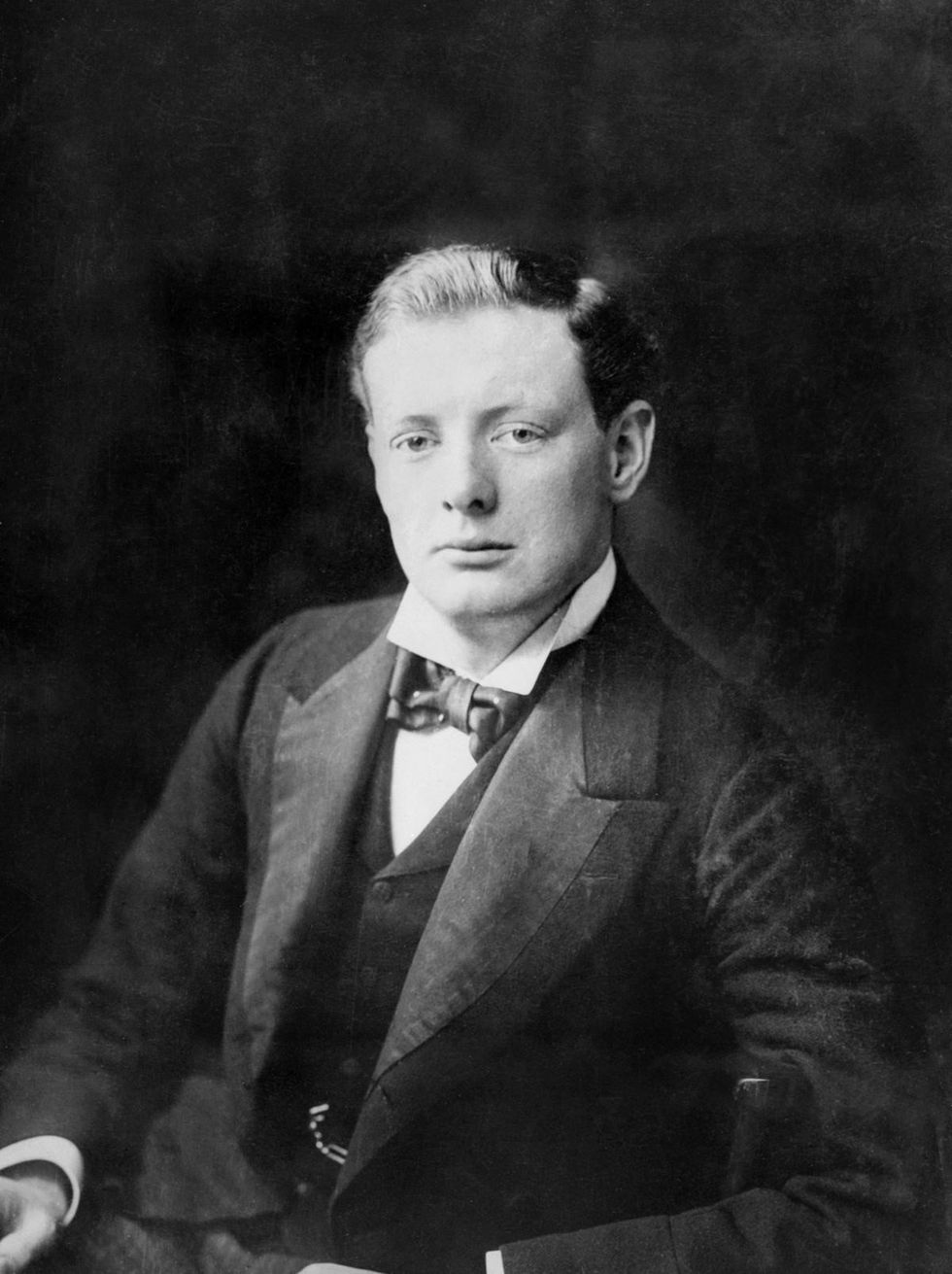
Sir Winston Churchill in 1900, the year of his election as an MP in Oldham
IWM
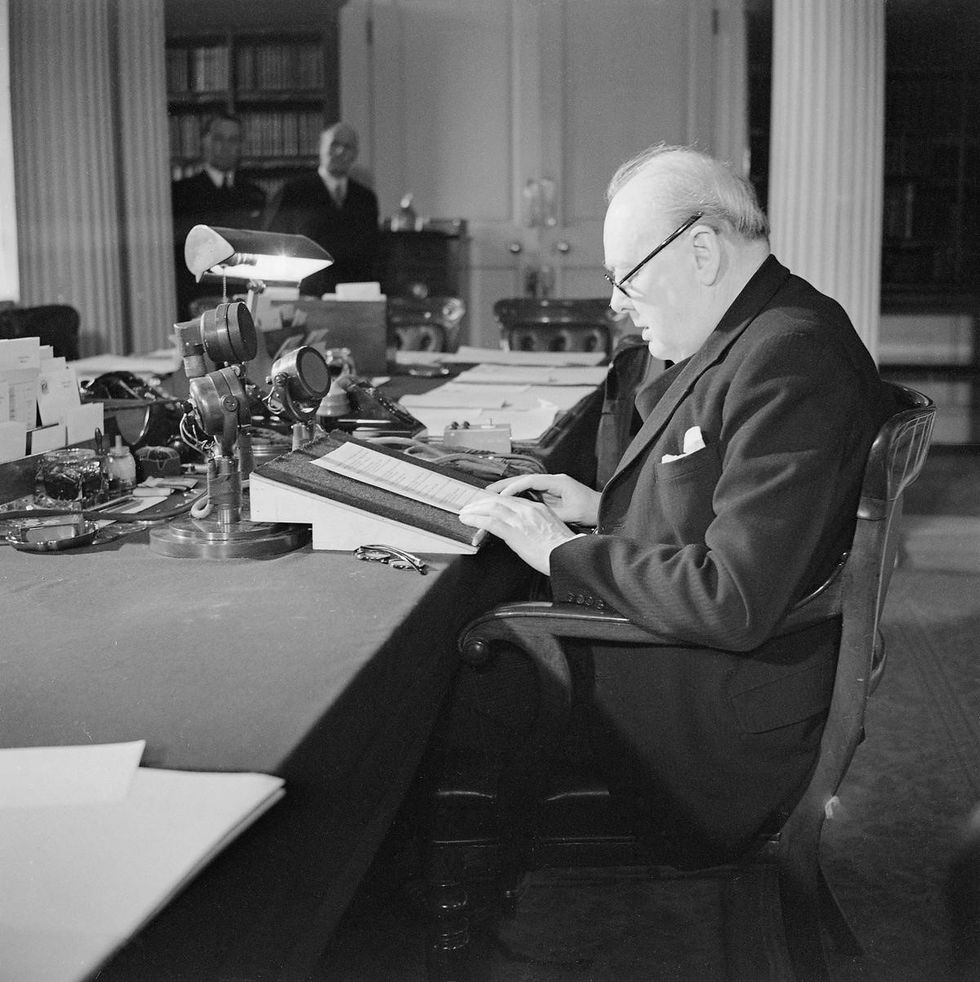
Sir Winston Churchill seated in the Cabinet War Rooms
IWM
Often remembered for his love of alcohol and cigars, Churchill is also characterised for his sensitivity, unafraid nor ashamed of shedding tears.
In 1965, Sir Winston died aged 90, being one of only few non-royals granted a state funeral.
“He has become somewhat legendary” Clements said, “but underneath all that there was a very real man.”
To mark the 150th birthday, IWM is hosting a series of events and exhibitions, including ‘Churchill in Cartoons’ featuring satirical drawings of the Prime Minster during the war.
Through the lens of history, Churchill has been criticised for his views about race, but thousands of tourists and Brits still visit his statue in Parliament Square every year.
“If it wasn’t for him we might all be speaking German” said Anne Billaskov from Denmark.
“He’s the greatest Brit of all time,” said Sergio Butkewitsch, aged 50, visiting London from America with his family.
“The world as we know it, good or bad, it’s better because of the work he has done.”
His son, Augusto aged 19, said “I learned all about him in school. He shaped the modern world and all of Europe as we know.”
“I’m very thankful for all he has done making the world a safe place.
“I think Churchill is the greatest Briton of all time. He saved us,” said Colin Smith, 65, from Milton Keynes.